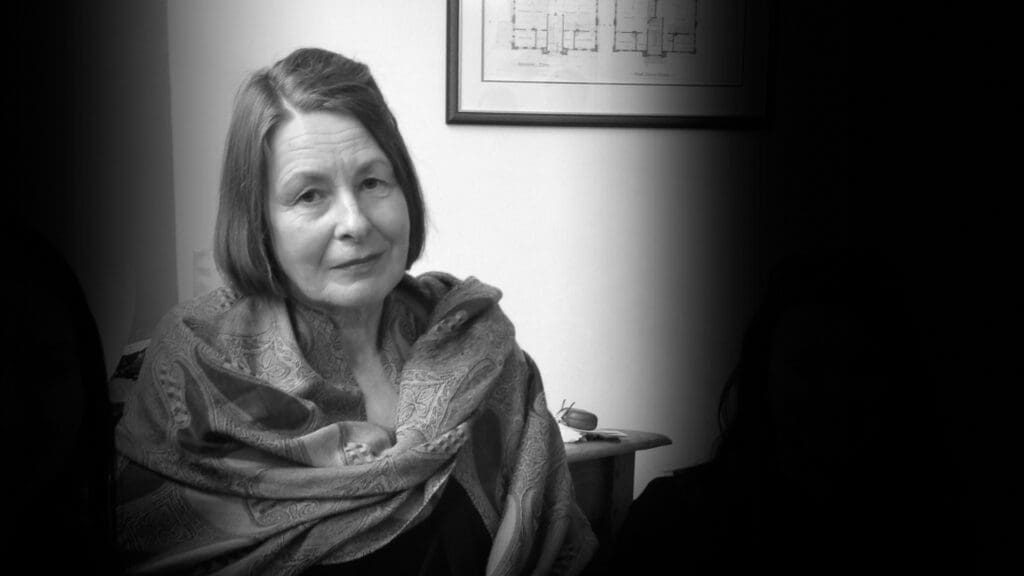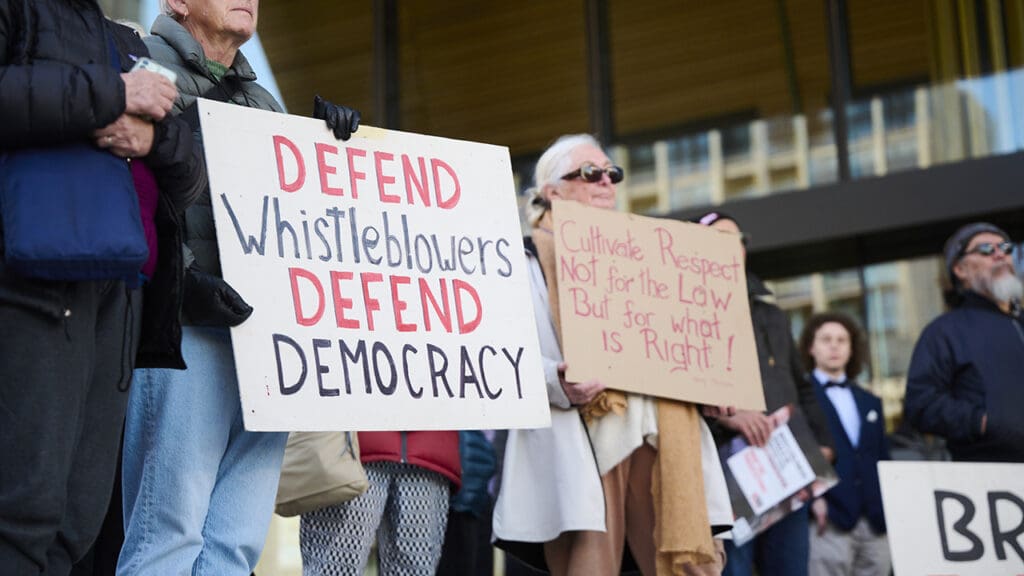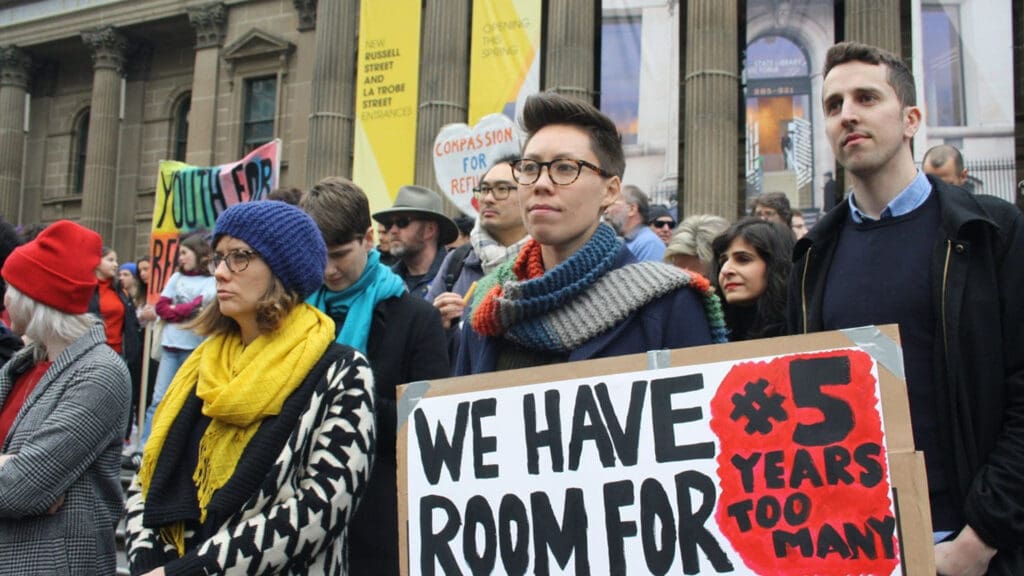A blow for democracy as Malinauskas government passes anti-protest laws
The Malinauskas Government’s anti-protest laws have passed the South Australian Legislative Council after an all night sitting. The laws, which were rushed through the Lower House of Parliament without any public consultation, will undermine the ability of everyone in South Australia to exercise their right to peacefully protest.
The Summary Offences (Obstruction of Public Places) Bill 2023 (SA) could see people hit with fines of up to $50,000 and three-month jail terms for obstructing a public place. Only one amendment to the Bill, by the Hon Connie Bonaros MLC, was successful. The amendment removed the element of ‘recklessness’ in the Bill which would have disproportionately criminalised peaceful protests and could have seen people jailed, for instance, for handing out pamphlets about gambling harm in front of a shop in Rundle Mall, or workers gathering on a footpath to demand better pay and conditions.
South Australia is the latest jurisdiction to impose severe penalties on people for engaging in peaceful protest, joining New South Wales, Tasmania, Victoria and Queensland who have passed anti-protest laws in the last five years. South Australia’s anti-protest laws carry the harshest financial penalties in Australia.
The Bill is excessive and will have a chilling effect on the right to protest in South Australia. The Bill is also potentially unconstitutional and in clear breach of well-established principles of international human rights law.
David Mejia-Canales, Senior Lawyer at the Human Rights Law Centre said:
“Australia’s democracy is stronger when people protest on issues they care about. The Malinauskas Government’s new laws are not only anti-protest, but they are also anti-people. I thank the cross bench for their tireless work, all night, to amend the Bill.
“The right to protest is fundamental to our democracy. Protest has been crucial to achieving many important social changes from First Nations land rights to the eight-hour workday. Under these new laws, the people who stood up for our rights would be locked up behind bars.
“We consider it highly likely that this law will end up in the High Court given the significant chilling effect it risks having on advocacy and democratic participation across the state.”
Media contact:
Thomas Feng, Media and Communications Manager, 0431 285 275, thomas.feng@hrlc.org.au
Michelle Bennett, Engagement Director, 0419 100 519, michelle.bennett@hrlc.org.au

Legal challenge against Tasmanian parole board’s new gag order against Susan Neill-Fraser
The Human Rights Law Centre has brought further legal proceedings on behalf of Tasmanian grandmother, Susan Neill-Fraser, to challenge a new restrictive parole condition.
Read more
Albanese Government must take opportunity to protect whistleblowers
The Albanese Government is being pushed to take the opportunity to enact stronger legal protections for whistleblowers and establish a Whistleblower Protection Authority, at a Parliamentary Inquiry today.
Read more
Allan Government’s kneejerk law and order response will not make communities safer from racism and hate crimes
Racist and antisemitic attacks, such as the horrific arson attack on East Melbourne Hebrew Congregation have no place in our community. Every person has the right to practice their religion without fear of intimidation or vilification, and to be protected from acts of hate speech, racism and violence.
Read more



